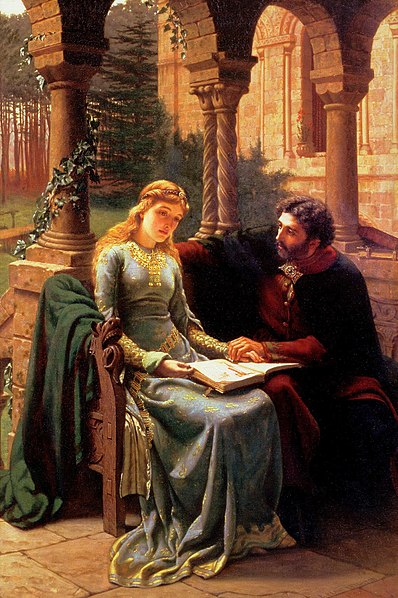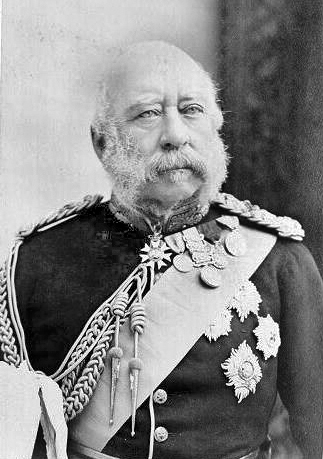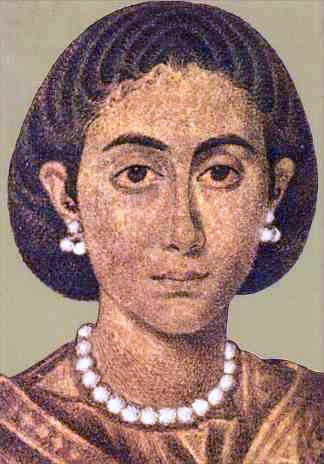
NINE LIKELY SUSPECTS
January 11, 1893
Washington, D.C.
Someone has finally killed Ben Butler. The Rebels of New Orleans couldn’t do it; the Brahmins of Boston couldn’t do it; Confederate President Jefferson Davis tried to do it; United States President Andrew Johnson wished he could have done it.
He survived the wrath of the Confederacy and the hatred of the Congress, but, it seems, the Supreme Court did him in.
It’s the most likely explanation, in view of the fact that he argued a case before the court just two days before he died.
Death by natural causes has been ruled out; someone this hated must have been murdered.
None of his many enemies have been able to stop him for the past fifty years. It could only have been something as big as the Supreme Court that could have taken him down.
There were many people over the course of his life who wanted to see him dead. Most of them have been eliminated as suspects, because they’ve died.
No one has accused any of the nine individual justices of murdering Butler, but the fact is, one of them is a southerner.
But seriously…
November 30th, 2022
Benjamin Butler was a lightning rod. He didn’t just attract lightning, he courted it. Most gadflies don’t last long in public life; Butler survived for decades, collecting enemies as he went. He also outlived most of them.
He was the nineteenth century’s most enduring troublemaker.
“Beast Butler”
The first group he upset was the entire Confederacy. As a general in the Civil War, he was appointed military governor of New Orleans after the Union captured the city. He declared martial law and restored order with efficiency and ruthlessness. He cracked down on rebelliousness in any form. When rebels took potshots from houses at his soldiers, he declared,
“If a shot is fired from any house, that house will never again cover a mortal’s head; and if I can discover the perpetrator of the deed, the place that now knows him shall know him no more forever.”
There stood an equestrian statue of Andrew Jackson in downtown New Orleans. Butler had a quote from Jackson chiseled into its base:
“The Union must and shall be preserved.”
He confiscated goods being shipped into New Orleans by foreign governments, a move that risked England and other nations getting into the war on the southern side, and adding Europe to his list of enemies.
Peevish and provocative, tyrannical and incendiary, he was also an outstanding administrator who secured the peace and fended off disease and starvation.
To fend off a pandemic of Yellow Fever, he cleaned drainage ditches and swept the streets, and used white southern labor to do it, something unthinkable and infuriating to the rebels. He also confiscated the money and possessions of the wealthy (whom he blamed for the war), and used it to feed the hungry poor of the city (whom he saw as victims).
General Butler was a tyrant but martial law was still law and he was still a lawyer, and able to be swayed by legal logic.
It was common practice during the Civil War to release captured soldiers if they promised not to take up arms again. It was called being paroled.
Butler decreed the death penalty for six men who broke their parole.
Two of them put forth an argument that won him over.
“Paroling is for officers and gentlemen. We’re not gentlemen.”
He commuted their sentences to hard labor.
In his determination to fight rebelliousness, he made two decisions that made him the most hated man in the South.
The ladies of New Orleans refused to show any courtesy to the Union soldiers, whom they saw as usurpers. Butler refused to ignore this slight; he issued an order that any woman who so insulted a soldier would be treated as a prostitute.
Attacking the honor of Southern women was not what President Lincoln had in mind when he sent Butler to New Orleans with the purpose of “drawing back into the ark the wanderers and the deluded.”
Lincoln wanted to “win the hearts and minds” of the people. Butler had enraged them with a gratuitously insulting order.
The women of the town were sufficiently cowed by his “Woman Order” but they rebelled in subtle ways. They began wearing tiny Confederate flags on their bosoms.
“Outlaw”
The other decision that made him infamous was the execution of William B. Mumford. When Northern troops took the city, they raised the American flag over the mint. Mumford led a group of men that ripped it down. Butler had him killed for it.
The general justified his action with characteristic wit and bombast.
“They shall fear the stripes if they do not reverence the stars of our banner.”
Jefferson Davis, the President of the Confederacy, proclaimed Butler a felon and an outlaw, and ordered that if he was captured, he should be hanged on the spot without a trial.
Butler and Davis had a complex history. In 1860 Davis ran for president of the United States, and Butler voted for his nomination fifty-seven times. After the war Butler pushed to have Davis tried for treason in a military court, and President Andrew Johnson instructed Butler to stay in uniform so that he would be able to act as prosecutor in that trial.
(That trial never took place, but Butler did in fact serve as prosecutor in the trial of President Johnson himself, for impeachment.)
Butler’s legacy lived on in New Orleans: for years after the civil war, steamships plying the lower Mississippi were furnished with chamber pots bearing the likeness of “Beast Butler.”
“The most cool and impudent man I ever saw.”
Butler was also in the middle of just about everything.
He ran for governor of Massachusetts four times representing three different political parties, before finally winning in 1882. He also served three terms in congress and made a run for the White House.
As a lawyer before and after the war, he tried many high profile cases.
He represented John Sutter, on whose property at Sutter’s Mill gold was discovered, setting off the gold rush.
He secured a patent for Thomas Edison.
He defended one of the Haymarket Anarchists, even though he was the brother of a political enemy.
He represented Admiral Farragut before the Supreme Court, seeking $1.5 million in prize money. (At that time, a ship’s captain who captured an enemy ship was entitled to prize money as a reward.)
He went up against Henry Ward Beecher in a legal action that grew out of the preacher’s famous adultery trial.
He represented Lincoln’s former Treasury Secretary Simon Cameron when a married women he had had an affair with, sued him for breach of promise. The case involved an abortion, the promise of marriage, a payoff to keep her quiet, and Pinkerton detectives.
When President Franklin Pierce’s son was killed in a railroad accident, and the railroad was being sued, Pierce asked Butler to represent the railroad!
Mrs. Pierce believed that God had taken her son so that her husband could focus all his energies on the presidency, and the railroad should not be blamed. Butler won the case.
Another case earned him the contempt of an entire town. A longtime friend of his was killed, and he traveled to this town to attend the funeral. While there, the judge in the murder trial prevailed upon him to defend the murderer. He was able to obtain a reprieve from hanging.
He aroused the community’s anger without the benefit of the accused man’s gratitude. The man told him,
“I wish I had been sentenced to be hanged.”
Butler responded,
“I wish you had let me know your preference a few hours ago, and I would have accommodated you.”
“The Firebrand of Congress”
Butler’s most high profile case was not as a defense counsel, but as a prosecutor. As a member of congress, he undertook the first prosecution of impeachment of a president of the United States. The first article of impeachment was drunkenness in office. Butler charged that,
‘When he “mumbled the oath” as Lincoln’s successor, he “slobbered the Holy Book with a drunken kiss.”’
The prosecution failed by one vote, and Andrew Johnson remained in the presidency.
In a twist of historical irony, Butler could have been in Johnson’s place.
When Lincoln ran for reelection in 1864, he ditched his vice president, Hannibal Hamlin, and asked Butler to be his running mate. Butler turned him down, joking that he wouldn’t accept unless Lincoln could promise he would die within three months of being elected. (Of course, he was killed one month into his second term.)
(After turning down Lincoln in 1864, Butler was offered the vice presidential spot on the Radical Republican ticket, which he also turned down.)
“Scourge of the Ku Klux Klan”
Before the war, Butler was a pro-slavery northern Democrat.
His experience in New Orleans radicalized him. He became a staunch abolitionist during the war and a champion of civil rights for freed slaves after the war.
As the Union Army marched victorious through the South, slaves flocked to their banner. The various Federal generals responded in varied ways, from callous bigotry, to welcoming compassion. An example of the latter was General J.W. Phelps, who never turned away a slave or made him work. He declared slavery illegal in the Gulf states.
Phelps inspired Butler to muster freed slaves into the army one month before the Emancipation Proclamation.
When rebels demands that Butler return the freed slaves, because they were property, he used their logic against them, declaring them “contraband of war.”
He reasoned:
“The captor of the slave had the recognized right to dispose of captured property, and the United States had exercised this right in emancipating the ex-slave.”
In congress during Reconstruction, Butler went after the Ku Klux Klan, authoring the “K.K.K. Bill.”
The bill made night riders “liable to the party injured” (allowing victims to sue their attackers, a practice that has become part of our judicial culture). It also stipulated that the trials would be carried out in district or circuit courts, to avoid the favorable treatment the perpetrators would have received in local southern courts. It also provided for the intervention of Federal troops.
A carpetbagger named A.P. Huggins had been given 75 lashes by night riders in March of 1868. Butler brought his bloody shirt to the floor of congress. The term “waving the bloody shirt” entered the political lexicon.
He then championed a civil rights bill that he got passed after a year of fighting, on his last day as a congressman.
“Contempt”
Benjamin Butler always spoke his mind.
When a judge asked, during a trial,
“Mr. Butler, are you trying to show your contempt for this court?”
He responded,
“No, your honor, I’m trying to conceal it.”
After being relieved of command in New Orleans, he was assigned to Virginia, where he ordered 203 executions. Lincoln issued a blanket order suspending all of them.
Butler then planned to rescue a contingent of Union prisoners being held near Richmond before they could be sent to a camp in Georgia. The plan fell through when convicted murder William Boyle escaped from a guardhouse and alerted the rebels. Butler telegraphed Lincoln, scolding “your clemency has been misplaced.”
As the country slowly healed from the self-inflicted wounds of the Civil War, Butler seemed to soften as he aged.
In 1869 Mrs. Mumford, destitute, sought out Butler, and he secured a job for her in the Treasury Department. She was fired in 1877, and she again approached him. He obtained another job for her by appealing to Hayes’s Postmaster General, who was an ex-Confederate.
So the story came full circle; the northern general infamous for insulting southern womanhood and indulging in belligerent rhetoric against southern men, quietly supplicated a southern man to help the southern women he had made a widow.
Sources
Butler’s Book, the Autobiography and Personal Reminiscences of Major-General Benjamin F. Butler, Benjamin Butler
Lincoln’s Scapegoat General: a Life of Benjamin F. Butler, 1818-1893, Richard S. West






